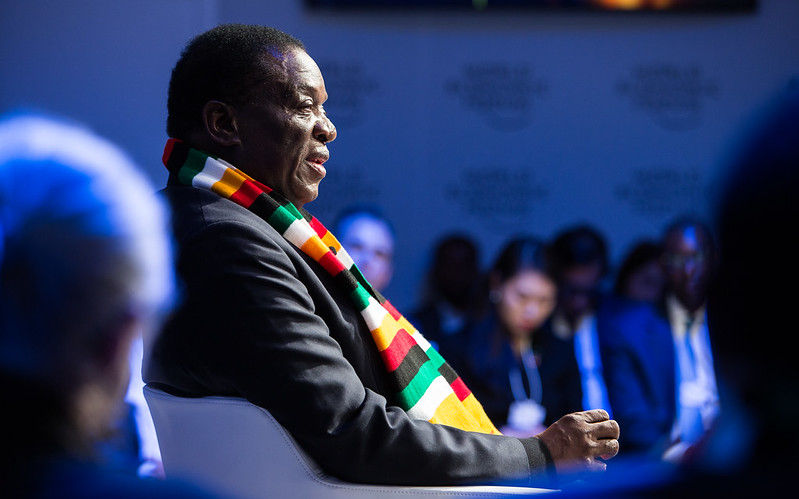The primary site of the authoritarian cancer is the embrace of abusive power as the way to govern.
Nelson Chamisa, leader of the Zimbabwean opposition, insists that the recent election which returned the government party ZanuPF and incumbent President Emerson Mnangagwa to power, was a gigantic fraud. Five years earlier, Mnangagwa succeeded Robert Mugabe, the autocratic leader who for decades had eliminated opposition and ruled a country experiencing hunger, massive unemployment and poverty.
Government by authoritarianism is not confined to African countries but Zimbabwe shows several neighbours, Mali, Burkina Faso, Guinea, Niger how to exercise power, by creating fear, by demanding obedience and punishing those who do not comply. Aided by men rewarded with income and uniforms, police and military, this is the way to rule. It is easy. Maintaining power as the means and end does not require much thought.
The Mugabe, Mnangagwa brand of authoritarianism has distinguishing characteristics: the domination of one person and one group, identity claimed to be safe by comparison with supposed dangerous enemies, plus propaganda which says that any alternative to this form of governance would threaten a country’s survival.
From President Mnangagwa, Zimbabweans can expect no tolerance of criticism, no respect even for a semblance of democracy. On June 1, 2023, the Zimbabwean parliament passed a ‘patriotic bill’ which outlawed criticism of the government and would punish with up to twenty years in prison anyone who ‘willfully damages the sovereignty, and national interests of Zimbabwe.’
A spokesperson for the Citizens Coalition for Change (CCC) says, ‘ZanuPF has reduced our great nation into an outpost of tyranny.’
In the macabre arts of authoritarianism, Mnangagwa served a long apprenticeship. From 1983, as Mugabe’s Security Minister in charge of a Fifth Brigade trained in North Korea, he removed all opposition from Joshua Nkomo, the leader in Matabeleland of the party Zapu the alternative to Mugabe’s ZanuPF.
In imitation of Chilean President Pinochet’s ‘Caravan of Death’, Mnangagwa’s troops murdered 20,000 people, a massacre which in the Shona language is called Gukurahundi, ‘the rain that washes away the chaff before the spring rains.’
In 2007, former Zimbabwean Senator Sekai Holland, recipient of the 2012 Sydney Peace Prize, was savagely beaten and badly injured when she questioned the atrocities of what she called ‘a brutal regime built on fear.’ Sekai reminds us that Mugabe boasted that he had a degree in violence and that, in view of his savagery, Mnangagwa is known as the crocodile.
The authoritarianism of such men is aided by the diverse characteristics of an aggressive, bullying culture which they have created. Bolstered by weapons and uniforms, a form of masculinity is on show and swaggers strength. Lawyers are arrested and harassed. Abductions and torture are common. Gender violence is taken for granted. Cruelty creates fear. Free speech is stifled, authoritarianism normalised.
Analysts of African governance by authoritarianism like to stress what they claim are complex causes. They identify the consequences of colonisation, the difficulties of introducing democracy, an uncritical acceptance of economic liberalism and the challenges involved in changing the nature of agriculture. But that sort of analysis diverts attention from the primary site of authoritarian cancer: the embrace of abusive power as the way to govern.
Men’s abusive use of power seems to intoxicate. Witness the global pandemics of domestic violence. Observe the dictats of Netanyahu in Israel, Orban in Hungary, Erdogan in Turkey, Trumpian Republicanism in the US, let alone the conduct of military thugs in Myanmar and the one-party rulers in Russia and China.
Failure to challenge governance which wastes the lives of Zimbabweans can look like collusion. The Southern African Development Corporation (SADC) merely says that events leading to President Mnangagwa’s return ‘fall short of standards required of the constitution of Zimbabwe.’ The EU’s judgement that the recent election took place in a climate of fear sounds like a fatalistic acceptance that nothing can be done.
Authoritarianism waxes and wanes across Africa but is clearly not just an African trait. Listen to Peter Dutton, Australian leader of the opposition. As though life is to be run by an unimaginative rule book, his stone-faced monologues show neither humility, nuance nor humour and suggest few other ways of thinking.
It is not necessary to return to events in Zimbabwe to realise where a bullying political soil lies fertile and where the seeds of authoritarianism would grow.
Stuart Rees AM is Professor Emeritus at the University of Sydney & recipient of the Jerusalem (Al Quds) Peace Prize.

